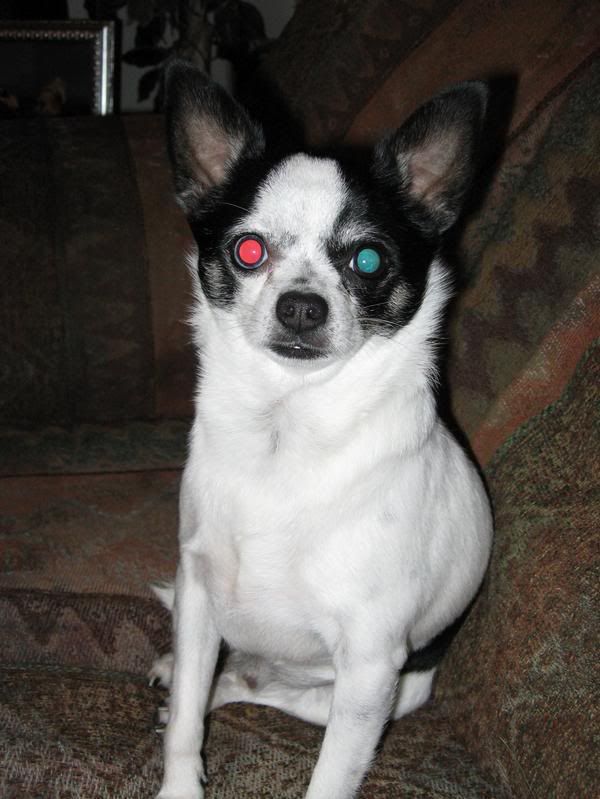In Koolies there's also the whole problem of certain people insisting that non merle is a throwback and should be bred out (which it really can't be).
Looking back on my posts I realized it sounds like merle is not good for anything, but what I was trying to say is there are potential problems when dealing with merle x merle breedings. Even though they are looked down upon, some people still try them. I know a sheltie breeder that is reputable that bred a double merle stud. Almost all white, but he can see and hear fine. I just keep wondering 'what if?, though. A lot of people do it to get full merle litters- any pups a double merle has will be merle. If it is bred responsibly, though, (and I don't believe breeding merle to merle is ever responsible) it poses no more problems than any other breeding. If someone bred a merle to a solid and had problems, then likely the solid is a cryptic merle. If you breed to a high white solid, some pups could look very similar to double merles, but they are not at risk for the sight/hearing problems.
The issue though to me seems mainly to be a purity issue, kind of like silver in labs. The only difference is silver is a recessive and merle is dominant.... it really has to come from somewhere unless it's not been recorded right for a LONG time. It is hard to keep merle hidden in a line. Even in shelties, though, where merle is widely accepted, it came about from crosses to collies early in the history. The original breed was almost all tricolor or black and white with other colors recorded but never merle. They liked to sneak show bred collies in the breed to fancy them up back then. I guess it depends on the breed club as to whether they decide to allow the color or not. You probably won't find a much more controversial color in dogs!


